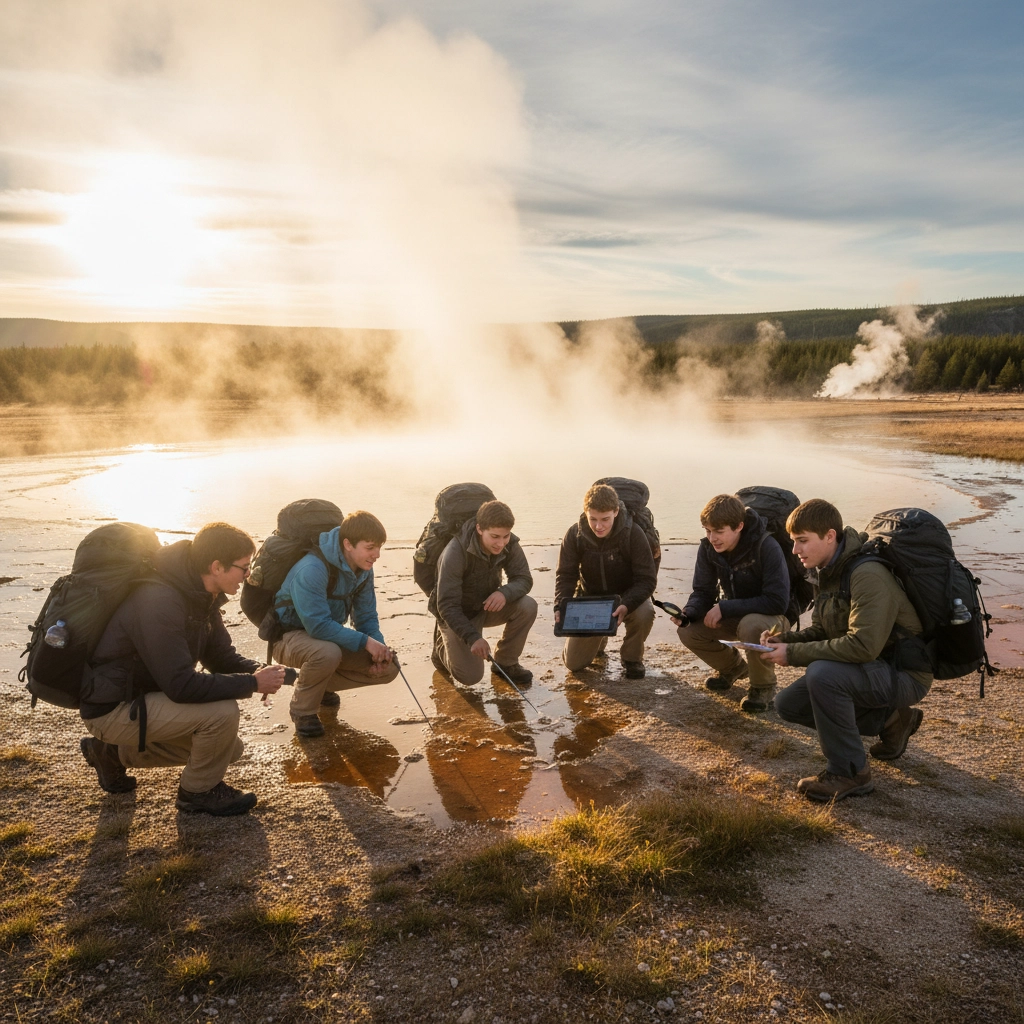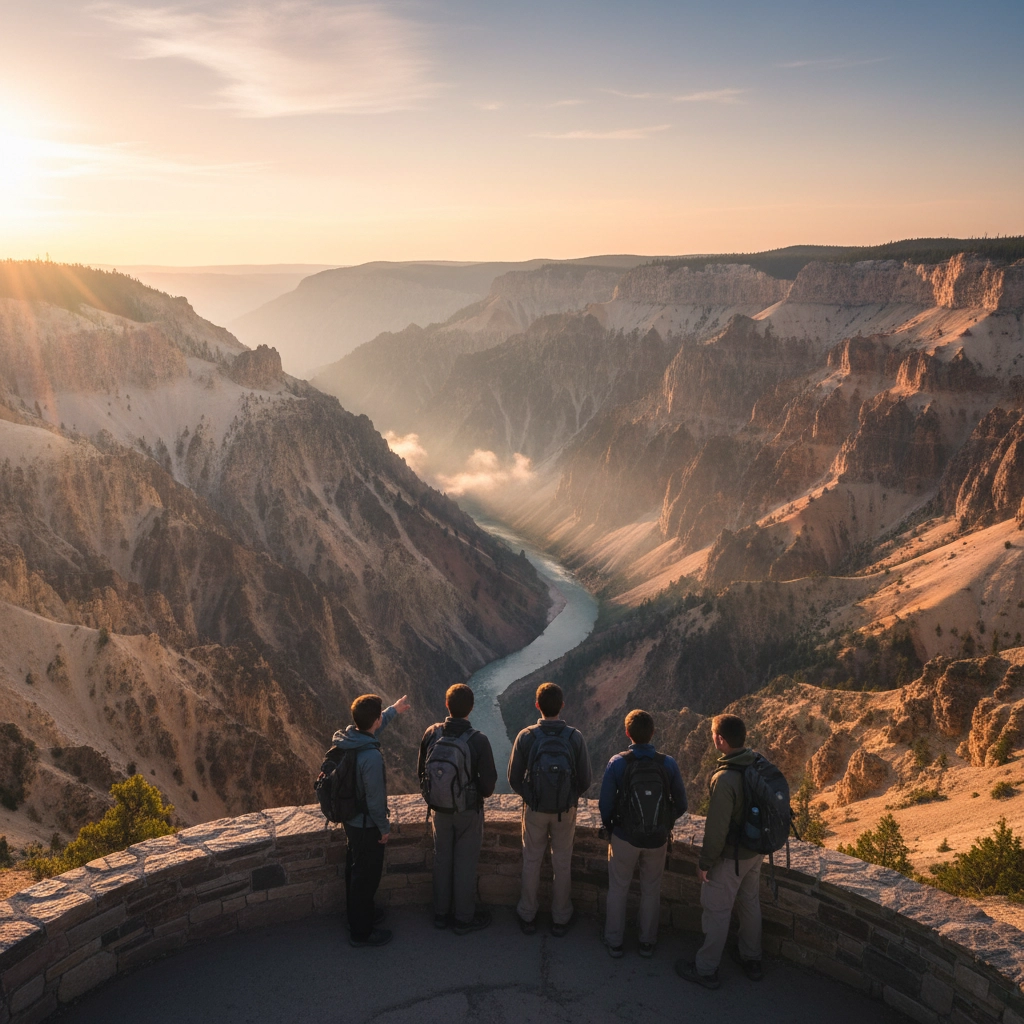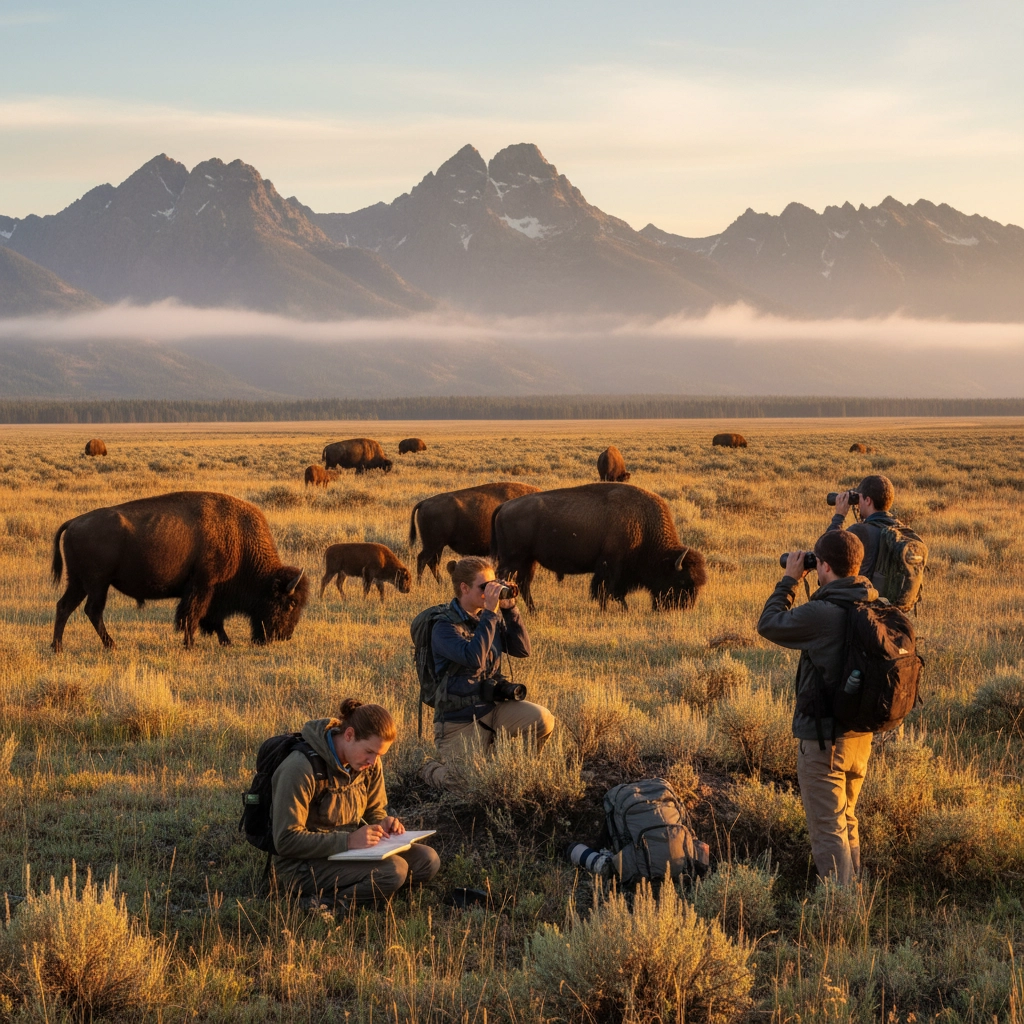Student Trips to Yellowstone: 10 Hidden Learning Opportunities Teachers Miss Every Time
- Caleb Mullenix
- Oct 28, 2025
- 5 min read
Planning a successful educational expedition to Yellowstone National Park requires strategic thinking beyond the typical tourist attractions. While most educators focus on Old Faithful and basic wildlife viewing, numerous specialized programs and learning experiences remain underutilized, representing missed opportunities to transform student trips into profound educational experiences. Ensuring maximum learning value from your Yellowstone expedition demands careful research into the park's comprehensive educational infrastructure.
Understanding these hidden opportunities enables you to design trips that meet specific curriculum standards while providing students with hands-on scientific experiences unavailable in traditional classroom settings. Preparation involves identifying programs that align with your educational objectives and booking specialized experiences well in advance of your visit.
Specialized Youth Development Programs
Junior Paleontologist Program
Begin by researching this often-overlooked program that engages students in authentic fossil identification and prehistoric ecosystem studies. Students complete activity booklets at visitor centers, learning how fossils reveal Yellowstone's ancient history spanning millions of years. Create an itinerary that pairs this program with visits to the Canyon Visitor Education Center, where students can observe geological layers that tell the story of the park's volcanic past.
Emphasize the importance of allowing adequate time for students to complete paleontology activities thoroughly. This program provides concrete connections between earth science curriculum and real-world geological processes, making abstract concepts tangible and memorable for young learners.
Young Scientist Program
Advise students to participate in this specialized program designed specifically for older learners and teens. The program encourages scientific observation through self-guided booklets covering geothermal energy, wildlife behavior, and ecosystem relationships. Many visitor centers loan science kits for daily use, enabling hands-on investigations that extend learning beyond passive observation.
Ensure that your group reserves science kits in advance, as availability varies by season and visitor center location. Share detailed information with students about proper equipment handling and scientific observation techniques before beginning field investigations.

Professional Ranger-Led Educational Experiences
Guided Nature Walks with Expert Park Rangers
Schedule guided walks led by park rangers who possess specialized knowledge in wildlife behavior, plant identification, geology, and conservation principles. These professional educators provide irreplaceable expertise that significantly elevates the educational value of your expedition. Contact visitor centers well in advance to arrange these specialized sessions, as availability is limited and booking requires advance coordination.
Discuss with rangers specific curriculum connections you wish to emphasize during guided walks. Rangers can tailor discussions to match your students' grade levels and learning objectives, ensuring maximum educational impact throughout the experience.
Virtual Ranger Programs for Extended Learning
Incorporate virtual visits with Yellowstone park rangers into your pre-trip and post-trip curriculum planning. The National Park Service offers live virtual sessions covering diverse topics across K-12 grade levels, allowing teachers to build comprehensive curriculum connections before students arrive and reinforce learning after they return.
Create a structured timeline that includes virtual sessions several weeks before departure and follow-up sessions within two weeks of return. This approach maximizes retention and helps students process complex ecological and geological concepts encountered during their visit.
Advanced Immersive Educational Programs
Yellowstone Forever Field Seminars
Research these multi-day seminars led by scientists, artists, and Indigenous knowledge keepers that provide intensive 1- to 6-day immersive experiences. Available year-round with small group formats, these programs reach far beyond standard field trips by incorporating expert perspectives on wildlife tracking, landscape ecology, and conservation research.
Begin planning these experiences at least six months in advance, as popular seminars fill quickly and require specific group size requirements. Ensure that participating students understand the intensive nature of these programs and come prepared for extended outdoor learning experiences.
Lodging and Learning Packages
Consider these 4- to 6-day all-inclusive programs that combine expert-led excursions with in-park lodging at Canyon, Lake, and Mammoth Hot Springs locations. Offered seasonally from December through October, these packages include meals and transportation, eliminating logistical barriers that often prevent schools from accessing deeper educational experiences.
Evaluate the cost-benefit relationship carefully, as these comprehensive packages often provide better educational value per dollar than individually arranged components. Share detailed itinerary information with parents and administrators to demonstrate the educational merit of extended stay programs.

Location-Specific Scientific Learning Opportunities
Hands-On Geology at Mammoth Hot Springs
Develop curriculum activities that utilize Mammoth Hot Springs as a specialized geology laboratory. Rather than treating thermal features as mere spectacles, design structured investigations where students observe mineral deposits, limestone formations, and active terracing processes firsthand.
Encourage students to create detailed geological field guides through systematic photography and observation. This concrete approach to studying earth science processes provides tangible learning experiences that reinforce classroom concepts about hydrothermal systems and mineral formation.
Wildlife Ecology Programs Beyond Basic Observation
Structure wildlife watching activities around specific ecological learning objectives rather than casual observation. Assign students to maintain detailed wildlife journals documenting animal behavior, habitat relationships, and conservation challenges in prime viewing areas like Lamar Valley and Hayden Valley.
Prepare students with proper wildlife viewing etiquette and safety protocols before beginning observations. Emphasize the importance of maintaining appropriate distances while conducting scientific observations, ensuring both student safety and wildlife protection.
Comprehensive Group-Centered Educational Initiatives
Yellowstone Forever Group Programs
Investigate these specially designed initiatives that allow students to experience extraordinary landscapes while participating in ecology-focused activities tailored to specific group needs. Unlike generic park visits, these programs structure student engagement around measurable learning outcomes related to wildlife observation and ecological principles.
Contact program coordinators at least three months before your intended visit to discuss customization options that align with your curriculum standards. Provide detailed information about your students' prior knowledge and specific learning objectives to ensure optimal program design.
Teacher-Developed Curriculum Materials and Resources
Access the National Park Service's residential curriculum-based programs specifically designed for teachers and their 4th- through 8th-grade classes. These structured 4- to 5-day programs connect directly to classroom standards while focusing on natural and cultural history in ways that generic park visits cannot achieve.
Review available curriculum materials thoroughly before departure to identify specific activities and assessments that support your educational objectives. Prepare students for intensive learning experiences by introducing key vocabulary and concepts during pre-trip classroom sessions.

Strategic Planning for Maximum Educational Impact
Ensuring successful implementation of these hidden learning opportunities requires meticulous advance planning and clear communication with all stakeholders. Begin researching and booking specialized programs at least four to six months before your intended travel dates, as popular educational programs fill quickly during peak school travel seasons.
Create detailed pre-trip lesson plans that introduce students to geological processes, wildlife ecology, and conservation principles they will encounter during their expedition. Share comprehensive itineraries with parents and administrators that clearly articulate educational objectives and expected learning outcomes for each program component.
Discuss emergency procedures and contingency plans with all participating educators and chaperones, ensuring everyone understands their roles in maintaining student safety while maximizing learning opportunities. Emphasize the importance of flexibility in scheduling, as weather conditions and wildlife activity can affect program availability.
Preparation for these advanced learning opportunities involves more than basic trip logistics: it requires commitment to transforming your Yellowstone visit into a comprehensive educational experience that extends far beyond typical sightseeing. By accessing ranger expertise, immersive programs, and curriculum-aligned resources, you unlock Yellowstone's full potential as an unparalleled outdoor classroom that will inspire your students long after they return home.
These strategic approaches to Yellowstone education ensure that your students gain deep, lasting knowledge about ecological systems, geological processes, and conservation principles while experiencing the wonder of America's first national park in meaningful, scientifically grounded ways.



Comments